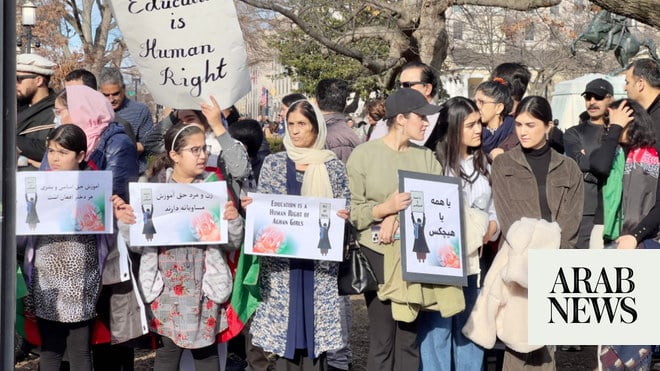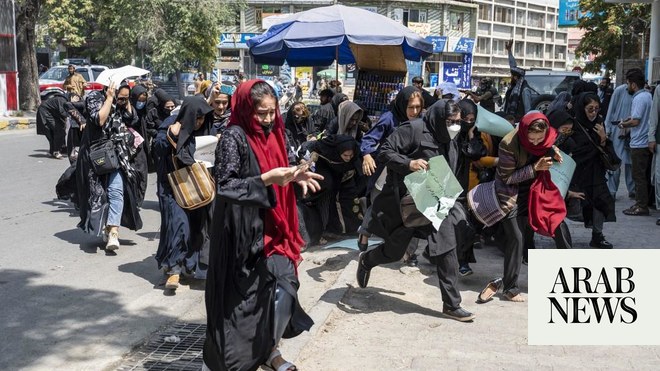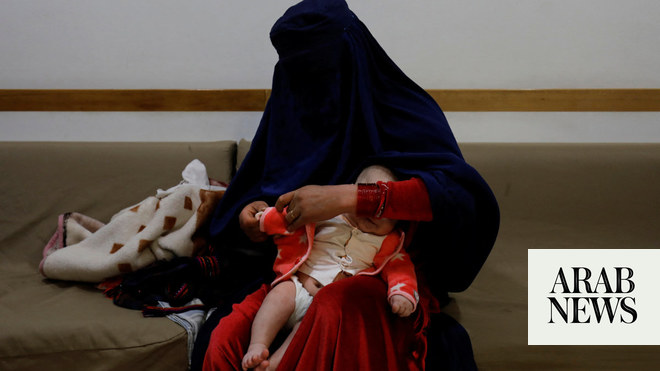
The acting head of the UN mission in Afghanistan met Taliban leaders on Monday in a bid to persuade them to withdraw their ban on all women working for aid agencies.
Ramiz Alakbarov met the Taliban’s economy minister, Din Mohammad Hanif, in Kabul, telling him that millions of Afghans need “humanitarian assistance and removing barriers is vital”.
Nida Mohammad Nadim, the Taliban higher education minister, responded to the international criticism, saying his government will not change its mind on girls’ access to education “even if they drop an atomic bomb on us” adding “we are ready for sanctions by the international community”.
Meanwhile, the Ministry of Foreign Affairs of Qatar announced in a statement that access to work is a principle of human rights that is accepted by all countries of the world. It is the latest government of a Muslim country to criticise the Taliban’s move.
At least seven major international aid groups have suspended their vitally needed operations in Afghanistan, potentially leaving the country’s battered economy on the brink of collapse. The aid agencies hope that by acting in unison and showing solidarity, they can convince the Taliban they have crossed a red line that makes it impossible for the NGOs to operate.
About a third of the NGOs’ staff are women, and seen as vital in providing services in a culturally appropriate way. The ban applies to NGOs, but does not as yet apply to the staff of UN agencies such as the World Food Programme and the Office for the Coordination of Humanitarian Affairs.
In a bid to head off a ban, the aid agencies had held meetings with the Taliban leadership, giving assurances over female staff wearing the hijab and travelling extended distances only in the company of a male.
But the NGOs said the Taliban had ignored the undertakings and revoked the promises.
The move was seen as a decisive signal that Taliban had decided to reimpose all the repressive measures against women that it enforced in the 1990s when it was last in power, and in so doing finally buried the notion that the rural Pashtun conservative culture was no longer dominant in the Taliban leadership. Many had suggested the Taliban had reformed during their two decades out of power.
Last week, the Taliban also banned women from attending university. Girls are already banned from secondary schools, and in November, women were banned from public gardens, gymnasiums and public baths.
Jan Egeland, chief executive of the Norwegian Refugee Council, admitted the temporary suspension of services had been difficult, but told the BBC: “we cannot work in an effective and qualitatively good enough manner with only male staff. They cannot deal directly with women according to the traditions in Afghanistan. We cannot function without a third of our staff.
“We would disintegrate as a principled organisation if we compromised on this and stumbled along with only male staff. As I told the Taliban several times, we respect their traditional values and for us it is a fundamental value that we have gender equality in the workplace.
“We cannot compromise on this one. If they want their population to have aid as they want, they have to nullify this decision. My heart is bleeding for those out in the open, freezing and starving in terrible conditions, and which we were planning to help next week. The Taliban are responsible for this from A to Z, and we have to call a spade a spade.”
Apart from the NRC, Save the Children, the International Rescue Committee (IRC), Islamic Relief, Care, Christian Aid and World Vision have all said they are suspending aid, although some said they may yet provide aid if it is required to save a life.
The NGOs are critical to the provision of healthcare, education, child protection and nutrition services and support amid worsening conditions. Successive droughts and a freeze on development aid to Afghanistan badly affected the health system, and have left 11 million people in need of humanitarian food assistance.
The IRC, which employs 3,000 women in a staff of 8,000, said in a statement: “The exclusion of women from humanitarian service delivery will have catastrophic consequences for the Afghan people because our services depend on women workers.”
One of the strongest reactions came from the German foreign minister, Annalena Baerbock, who said: “We will not accept that the Taliban are making humanitarian aid a pawn in their misogyny. They rob half the population of another fundamental right, violate humanitarian principles and endanger people’s vital needs.”
Top US officials, including the secretary of state, Antony Blinken, and the chargée d’affaires to Afghanistan, Karen Decker, condemned the move.
Decker, tweeting in the Dari language on Sunday, said: “As a representative of the largest donor of humanitarian assistance to Afghanistan, I feel I have the right to an explanation of how the Taliban intends to prevent women and children from starving, when women are no longer permitted to distribute assistance to other women and children.”
Her remarks triggered a response from the Taliban-led government’s chief spokesperson, Zabihullah Mujahid, who said all institutions wanting to operate in the country were obliged to comply with its rules and regulations.
“We do not allow anyone to talk rubbish or make threats regarding the decisions of our leaders under the title of humanitarian aid,” he said in a tweet.
The Australian foreign minister, Penny Wong, condemned the “appalling decision”, saying on Twitter it “seriously impacts the country’s ability to deal with a major humanitarian crisis”.
Since the Taliban took over, government foreign aid stopped almost overnight. Sanctions on Taliban rulers, a halt on bank transfers and frozen billions in Afghanistan’s currency reserves have already restricted access to global institutions. The aid agencies not only distribute food, but administer health clinics. According to the European Commission, by 2023, 28 million Afghans (out of a population of more than 39 million) will need humanitarian assistance, including 13 million children. Nearly 20 million people are hungry and nearly six million survive on less than one meal a day.
The ban on female students attending universities triggered demonstrations in several Afghan cities with many chanting “women, life, freedom”, the slogan adopted by opponents of the compulsory hijab in Afghanistan. But the protests lasted only minutes before police intervened, including female officers. The deputy prime minister for political affairs, Abdul Kabir, met to discuss the ban on women attending university with a delegation of the Union of Private Universities of Afghanistan, and told them the ban would be lifted soon. Similar promises about revoking the ban on girls attending secondary schools were made, but were never fulfilled.
At about midnight on Saturday in the western city of Herat, where earlier protesters were dispersed with water cannon, people opened their windows and chanted “Allahu Akbar” (God is the greatest) in solidarity with female students.












